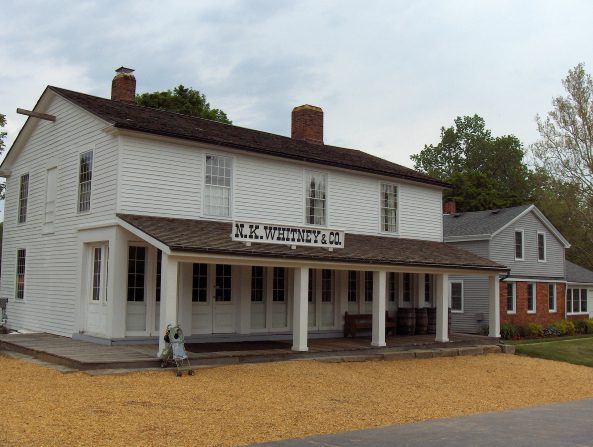
Eliza Snow remarked of Joseph Smith that “in his devotion [i.e., in his prayers] he was as humble as a little child.”[1] He was, concurred George Q. Cannon, “as meek and gentle as a little child.”[2] This aspect of his personality was also noted by Daniel Tyler:
At the time William Smith and others rebelled against the Prophet at Kirtland, I attended a meeting “on the flats,” where “Joseph” presided. Entering the school house a little before the meeting opened, and gazing upon the man of God, I perceived sadness in his countenance and tears trickling down his cheeks. . . . A few moments later a hymn was sung and he opened the meeting by prayer. Instead, however, of facing the audience, he turned his back and bowed upon his knees, facing the wall. This, I suppose, was done to hide his sorrow and tears.
I had heard men and women pray—especially the former—from the most ignorant, both as to letters and intellect, to the most learned and eloquent, but never until then had I heard a man address his Maker as though He was present listening as a kind father would listen to the sorrows of a dutiful child. Joseph was at that time unlearned, but that prayer, which was to a considerable extent in behalf of those who accused him of having gone astray and fallen into sin, was that the Lord would forgive them and open their eyes that they might see aright—that prayer, I say, to my humble mind, partook of the learning and eloquence of heaven. There was no ostentation, no raising of the voice as by enthusiasm, but a plain conversational tone, as a man would address a present friend. It appeared to me as though, in case the veil were taken away, I could see the Lord standing facing His humblest of all servants I had ever seen. . . . It was the crowning, so to speak, of all the prayers I ever heard.[3]
[1] $Andrus and Andrus, They Knew the Prophet, 63.
[2] Cannon, Life of Joseph Smith the Prophet, 358.
[3] The Juvenile Instructor 27 (1 February 1892): 127.*
***
The other day, I posted an item under the title “Most scientists now reject the idea that the first Americans came by land.”
A critic has now summarized the conclusion that I supposedly reached in that post essentially as follows (my paraphrase):
The new consensus about the ancient origin of the Amerindians makes the Book of Mormon and the claims of Joseph Smith even more plausible, scientifically, than they were before. After all, anti-Mormons, as science now demonstrates, were wrong about ancient travel by sea! How could the Prophet Joseph Smith possibly have gotten so much right about such things, things that we’re only learning now?
I challenge you to derive those sentiments honestly from what I wrote. Go ahead. Please try it.
***
I think that I’ll repeat something else that I posted the other day, in a different entry:
Good, incisive critics can often be a blessing. They force a person to ground her arguments in solid facts and to refine her analysis and expression and even, on occasion, to revise her views.
By contrast, careless critics who lack intellectual seriousness offer little or nothing of value.











